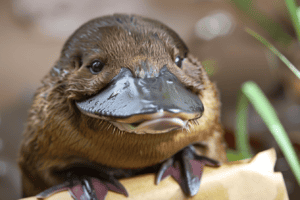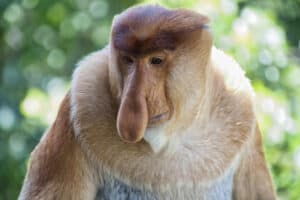Opossums are often seen as pests or roadkill, but did you know that these creatures possess an immune system that can put even humans to shame?
Yes, you read that right! Opossums, also known as possums, have some serious immune superpowers that have left scientists amazed.
In fact, their immune system is so unique that it has the potential to revolutionize medical research.

One of the most fascinating aspects of opossums’ immune system is their ability to fight off a wide range of diseases, including those that are deadly to other animals.
Opossums have a special protein called Lethal Toxin-Neutralizing Factor (LTNF) that can neutralize snake venom, rabies virus, and even the bacteria that cause botulism.
This protein is not found in any other animal, making opossums the only known mammal that is immune to venomous snakebites.
The Marvels of Opossum Immunity
Opossums are known for their unique ability to play dead when threatened, but did you know that they also possess some incredible immune superpowers?
These marsupials have a complex immune system that allows them to resist and fight off a variety of diseases and infections.
The Peptide Powerhouse
One of the key components of the opossum’s immune system is a group of small proteins called peptides.
These peptides have been shown to have powerful antimicrobial properties, meaning they can kill or inhibit the growth of harmful bacteria, viruses, and fungi.
In fact, opossum peptides have been found to be effective against a wide range of pathogens, including the bacteria that cause Lyme disease and the fungus responsible for athlete’s foot.
Researchers are even exploring the potential of these peptides as a new class of antibiotics to combat drug-resistant infections.
Disease Resistance Revealed
But peptides aren’t the only weapon in the opossum’s immune arsenal. These marsupials also have a unique way of fighting off viruses.
When a virus enters the body, it typically replicates rapidly, overwhelming the immune system and causing illness.
But opossums have a mechanism that allows them to slow down the replication of viruses, giving their immune system time to mount a defense.
This mechanism involves a protein called interferon gamma, which is produced by opossum immune cells in response to viral infection.
Interferon gamma activates a series of genes that slow down the replication of the virus, allowing the opossum’s immune system to catch up and clear the infection.
Overall, the opossum’s immune system is a marvel of natural engineering, with a range of unique and powerful defenses against disease.
From peptides to interferon gamma, these marsupials have evolved some truly remarkable strategies for staying healthy in a challenging world.
Opossums in the Ecosystem

Nature’s Cleanup Crew
Opossums are often referred to as “nature’s cleanup crew” due to their unique role in the ecosystem.
They have a diet that consists of both plants and animals, making them omnivores.
However, they are not picky eaters and will consume almost anything, including carrion, insects, fruits, and vegetables.
Their scavenging habits are particularly important as they help to remove dead animals from the environment.
Opossums are known to eat roadkill, which helps to prevent the spread of diseases that can be transmitted by decaying animals.
This is especially important in urban areas where wildlife and humans coexist.
Balancing Biodiversity
Opossums play a crucial role in balancing the biodiversity of their habitats.
They are opportunistic feeders and help to control the population of insects and small animals.
This helps to prevent overgrazing and overpopulation, which can have a negative impact on the environment.
In addition, opossums are prey to many predators, including coyotes, foxes, and owls.
Their presence in the food chain provides a food source for these predators, which helps to maintain the balance of the ecosystem.
Overall, opossums are an important part of the ecosystem and their unique scavenging habits and opportunistic feeding help to maintain the balance of biodiversity.
Scientific Discoveries and Potential

Medical Research Breakthroughs
Opossums have been the subject of intense medical research for their unique immune system.
Scientists have discovered that opossums have the ability to fight off a wide range of diseases, including some that are deadly to humans.
This is due to their ability to produce a special protein called Lethal Toxin-Neutralizing Factor (LTNF).
LTNF has been found to neutralize the toxins produced by a variety of pathogens, including bacteria, viruses, and fungi.
This protein has the potential to be used in the development of new treatments for infectious diseases in humans.
In fact, researchers have already used LTNF to successfully treat mice infected with the deadly Ebola virus.
Another breakthrough in medical research involving opossums is the discovery of a peptide called Opposin.
This peptide has been found to kill a wide range of bacteria, including antibiotic-resistant strains like MRSA.
Scientists are currently exploring the potential of Opposin as a new antibiotic to combat the growing problem of antibiotic resistance.
Future Implications
The immune superpowers of opossums have far-reaching implications for medical research and human health.
Researchers are currently exploring the potential of opossums as a source of new treatments for infectious diseases and antibiotic-resistant bacteria.
The unique immune system of opossums could also provide insight into the evolution of the immune system in mammals.
Understanding how opossums are able to fight off so many different pathogens could help scientists develop new strategies for boosting the immune system in humans.
In addition to their medical potential, opossums also play an important role in the ecosystem as scavengers.
They help clean up dead animals and other organic matter, which helps prevent the spread of disease.
Opossums are also an important food source for many predators, including owls, foxes, and coyotes.
Overall, the immune system of opossums is a fascinating area of research with the potential to make a significant impact on human health.
Frequently Asked Questions

How do opossums help control the tick population?
Opossums are known to be the tick’s worst enemy. They are natural tick vacuums and can consume thousands of ticks each season.
When opossums groom themselves, they swallow the ticks that they come across, which prevents the ticks from spreading diseases like Lyme disease.
Opossums are also known for their unique immune system, which helps them fight off tick-borne diseases.
What makes opossums resistant to snake venom?
Opossums have a unique protein called Lethal Toxin Neutralizing Factor (LTNF) in their blood, which helps them neutralize snake venom.
When a snake bites an opossum, the LTNF protein binds to the venom and neutralizes it, preventing it from causing harm to the opossum.
Can opossums really consume thousands of ticks each season?
Yes, opossums can consume thousands of ticks each season. A single opossum can eat up to 5,000 ticks in one season, which is more than any other animal.
This makes them an important part of the ecosystem and helps control the spread of tick-borne diseases.
In what ways do opossums benefit the ecosystem?
Opossums benefit the ecosystem in many ways. They are natural pest controllers and help control the population of insects, rodents, and other pests.
They also help control the spread of tick-borne diseases by consuming large numbers of ticks.
Additionally, opossums are an important part of the food chain and provide food for many predators.
Are there any predators that opossums are particularly vulnerable to?
Opossums are vulnerable to many predators, including dogs, cats, owls, and foxes. They are also susceptible to being hit by cars when crossing roads.
However, opossums have a unique defense mechanism where they play dead when threatened.
This helps them avoid predators, as many predators lose interest in a dead animal.
How does the opossum’s immune system compare to other mammals?
The opossum’s immune system is unique and different from other mammals.
They have a lower body temperature, which makes it difficult for viruses to thrive in their bodies.
Opossums also produce a unique protein called Lethal Toxin Neutralizing Factor (LTNF), which helps them fight off snake venom and tick-borne diseases.
Additionally, opossums have a unique ability to regenerate damaged tissue, which helps them recover from injuries quickly.









